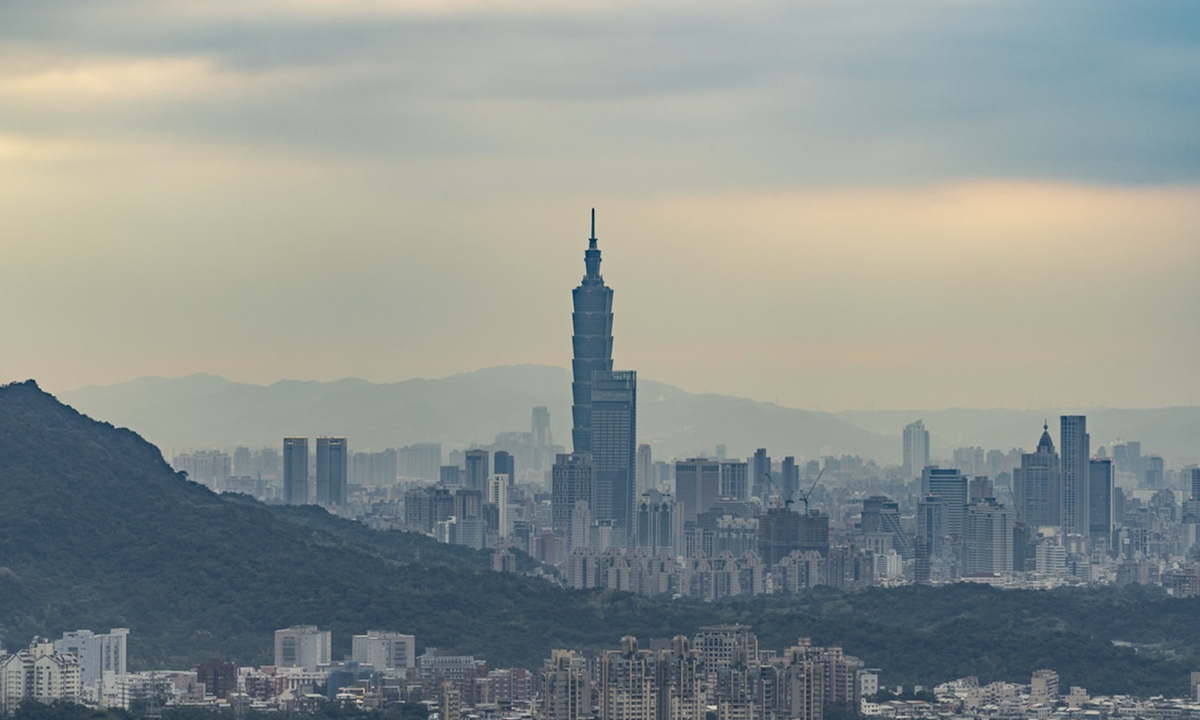
Taiwan Photo: Unsplash
With Japan's domestic political forces turning right, the momentum of a strengthening relationship between Japan and secessionist Taiwan authorities could be one of the negative legacies and time bombs left by suddenly diseased Shinzo Abe, warned observers from the Chinese mainland following reports that a Japanese parliament delegation plans to visit the island of Taiwan in late July.
On Tuesday when William Lai Tsing-te, deputy regional leader of the island of Taiwan and a secessionist politician, attended Abe's funeral in a "private capacity," the island's external affairs department in the island confirmed an announcement made by Hsieh Chang-ting, head of the island's "representative office" in Japan, that a group of seven members of Japan's National Diet will visit the island at the end of July, Taiwan News reported.
Hsieh announced the news of the visit on Facebook, saying that after Abe's passing, it is particularly meaningful for Japanese Diet members to visit the island, which means that support for Taiwan "will not dissipate."
Media said that the roster of the delegation and the purpose and itinerary of the visit to Taiwan are still being arranged.
After Abe stepped down in 2020 as Japanese prime minister, he had made great efforts into pushing collusion with the secessionist Taiwan authorities and encouraging Taiwan secessionism, and such frequent exchanges with the Taiwan authorities would continue and be even promoted by the Kishida administration, observers believe.
A Chinese Foreign Ministry spokesperson in March at a press conference has condemned some politicians in Japan who openly colluded with Taiwan secessionists and pointed fingers at the Taiwan question, which China is firmly opposed to and strongly dissatisfied with after former Japanese prime minister Shinzo Abe and Taiwan regional leader Tsai Ing-wen spoke during the virtual talk.
While slamming Lai's attendance at Abe's funeral as an "unprecedented and out-of-line" move, Xin Qiang, deputy director of the Center for American Studies at Fudan University, warned that the increasing conservative tendency in Japan would trigger more right-wing Japanese politicians to jump out and engage in political manipulation and provocations on the Taiwan question.
Exchanges such as visits between politicians are likely to be more frequent as Japan is trying to play the "Taiwan card" to contain China while the Taiwan authorities hope to resist reunification with the Chinese mainland by strengthening ties with both Tokyo and Washington, Xin said.
Taiwan's Democratic Progressive Party (DPP) authority has been widely criticized for wooing Japan for years. Many blast DPP's colonial mentality and its glorifying of colonization by Japan.
Taiwan was ceded to Japan in 1895 under the Treaty of Shimonoseki, after China's Qing Dynasty (1644-1911) was defeated by Japan in the first Sino-Japanese War. On October 25, 1945, China recovered the island that had been occupied by Japan for half a century.
A civil war broke out in China shortly after the recovery of the island of Taiwan. The Kuomintang was defeated by the Communist Party of China and retreated to the island of Taiwan in 1949.
However, 77 years after the 1945 recovery of Taiwan from Japan's colonial rule, in order to justify its "Taiwan independence" policy agenda, the DPP authority continues to glorify Japanese colonization of Taiwan, which made some residents in the island form a wrong view of history, Xin criticized.
Among the insightful people in the island of Taiwan, Zheng Zhihua, a Chinese pop music legend, uploaded a post on Facebook in July 2021, which appeared to be satirizing the DPP authority and the deceived people, according to media reports.
"People here don't speak English but guard the door for the US, people here don't speak Japanese but recognize Japanese ancestors, people here speak and write Chinese but see China [Chinese mainland] as the enemy..." said Zheng's post.
Zheng's post has been widely echoed by netizens in the island. "This is the deepest and best interpretation of Taiwan's current situation I have ever seen!" commented one netizen.




